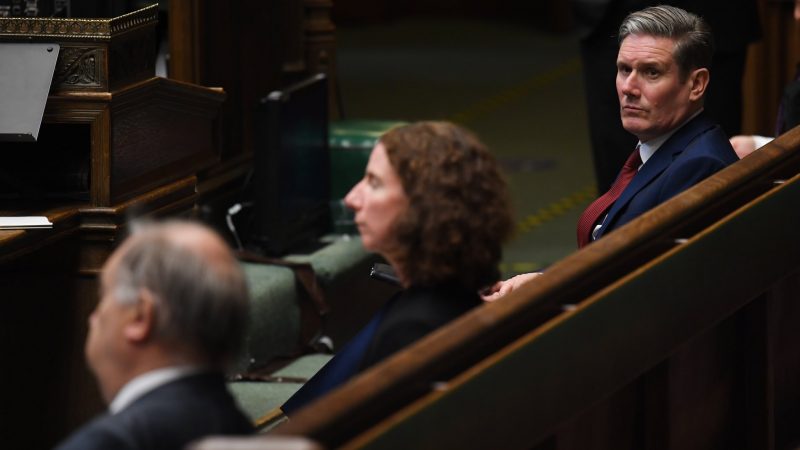
Boris Johnson is backing up his recently unveiled ten-point climate plan with a newly strengthened target to reduce carbon emissions by at least 68% over the next decade. The move, which should see the UK cut greenhouse gas emissions faster than any other major economy from now until 2030, has quietly impressed some, and it has been welcomed by Labour. But Ed Miliband has also pointed out that there is a “yawning gap” between the government’s stated aspirations and its policies. A chasm, really. The plan announced month set out proposals amounting to £12bn – but only £4bn represented new spending commitments. Rehashing existing pledges will not be enough for the UK to actually reach its 2030 target or aim for net zero by 2050.
While Miliband is urging the government to “go further and faster”, activists in campaign groups such as Labour for a Green New Deal are pushing the opposition party to do the same. Spokesperson Lauren Townsend slammed the new Tory announcement as a “failed Tory tribute act to Labour’s Green Industrial Revolution of 2019”, but also called on Labour to “go beyond pointing out holes and voice the alternative”. They believe that under Keir Starmer’s leadership the party has shied away from presenting its own big ideas, merely reacting rather than shaping the narrative. And they ask: if the Tories can go more than two-thirds of the way, can’t Labour go for 100% of the emissions reduction aim that was backed by conference?
The chances of a post-Brexit trade deal being struck in the next few days as expected are reportedly receding – or at least, that is what UK government sources are briefing. Fishing is still being cited as the key sticking point, and France is still playing bad cop, threatening to veto any agreement brought back that is not considered satisfactory. Whether Downing Street is exaggerating the difficulty of the talks or no deal is genuinely a very likely prospect, it does make one wonder why exactly the domestic ‘discourse’ on Brexit has been dominated this week by reports that Labour frontbenchers would consider resigning if Starmer tells them to vote for a Tory deal, as the leadership is currently inclined to do.
We don’t know yet whether a deal will be struck. If an agreement is reached, the way that Labour MPs are whipped will probably be inconsequential in terms of whether the deal is passed by the Commons. If it looked as if Labour votes were actually going to matter because Conservatives were so unhappy with the deal, the government could simply cite “exceptional” circumstances and not hold a vote. Of course Labour members should debate the party’s position, but why is the focus right now on differences of opinion between the opposition leader and his Shadow Chancellor?
Naturally, journalists enjoy the irony of Starmer – the man accused of blowing up Labour talks with Theresa May last year – promoting the line that a bad deal is better than no deal. But the media is the media, and the events of this week also point towards an issue of poor party management: clearly, the Remainers on Labour’s frontbench – and the backbenchers pitching critical comment pieces to LabourList – need a bit more love and attention from the boss.
Sign up to LabourList’s morning email for everything Labour, every weekday morning.



More from LabourList
‘Labour is being badly misled on housing’
Reeves bets on patience over populism
‘Energy efficiency changes must work for older private renters’